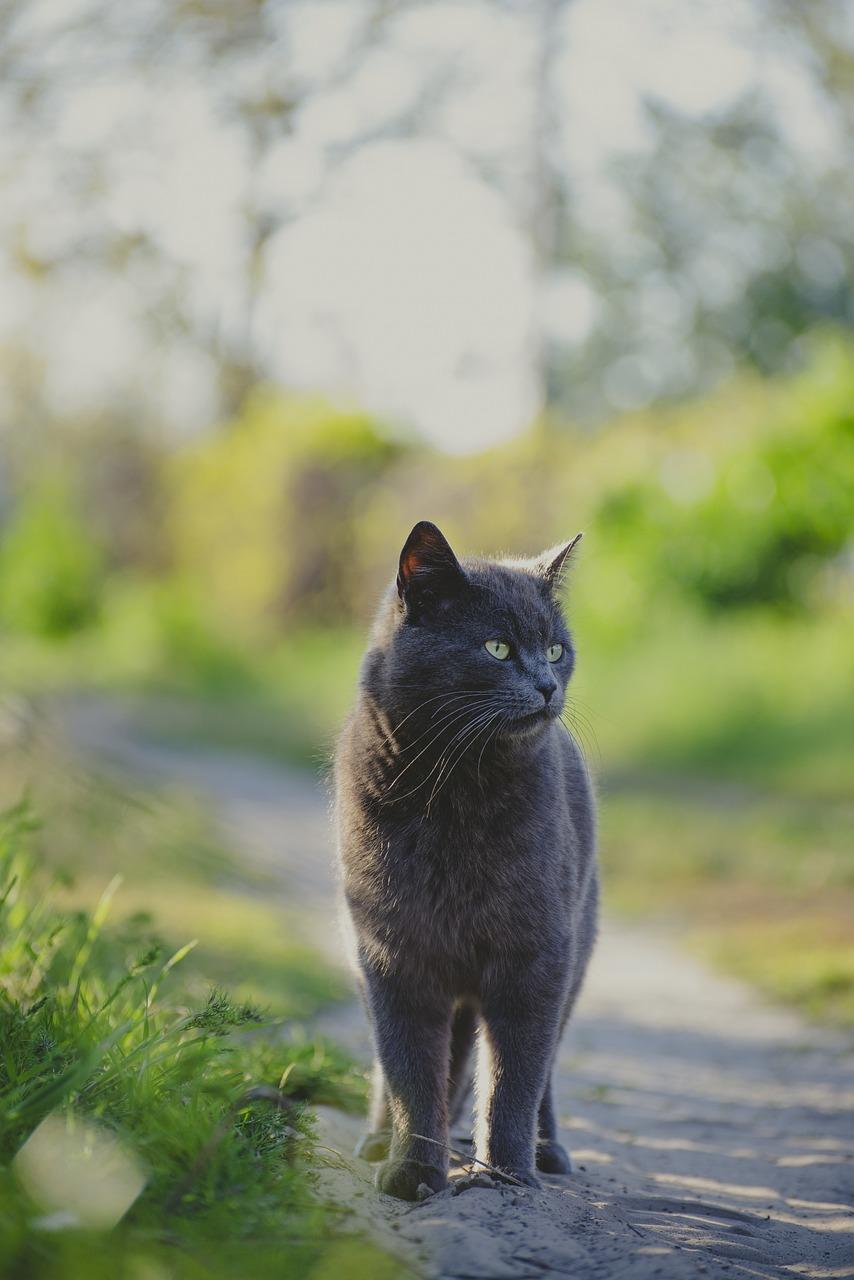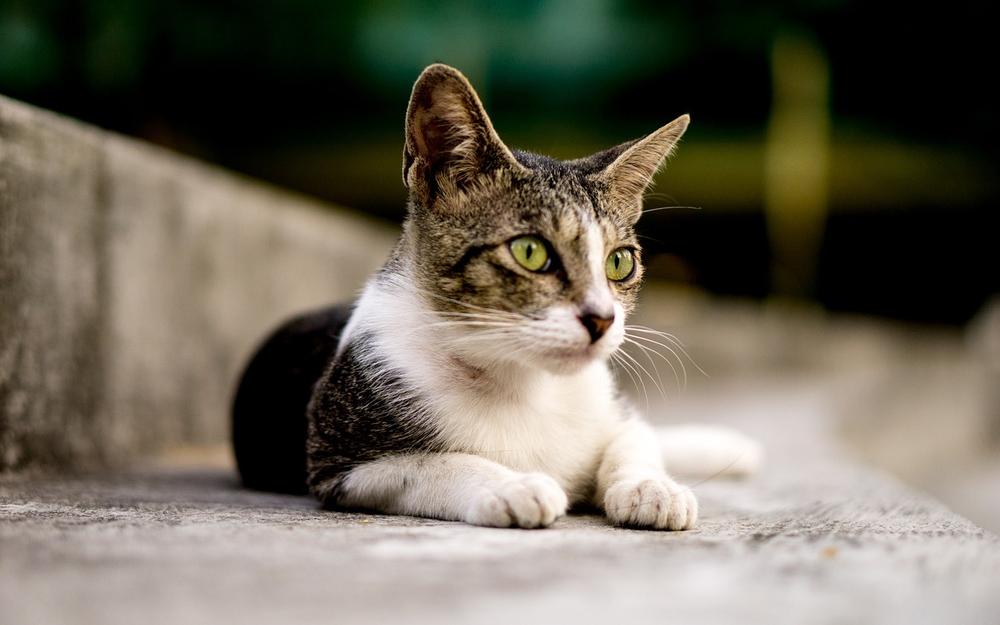Are Cats Afraid of Fireworks?

Are you worried about your cat during fireworks?
Do you lie awake at night, imagining their little hearts racing and their paws trembling?
Well. I've got something to say that might just soothe your anxious soul. 😊
Let's dive in, shall we?
Why Cats Are Scared of Fireworks
Cats are scared of fireworks due to their sensitive senses, including hearing, which can be overwhelmed by the loud explosions and bright lights. Fireworks disrupt their routine, causing anxiety and leading to behaviors like hiding, urinating inappropriately, scratching furniture, and vocalizing frustration.
Cats and fireworks don't mix. You've probably noticed this during Fourth of July celebrations or New Year's Eve.
Here's why cats get scared of fireworks...
First off, cats have super sensitive senses, including their hearing.
Those loud explosions and bright lights can be overwhelming for them.
Can you blame them?
I mean, if someone set off fireworks right next to my ears, I'd bolt too!
Also, cats are creatures of habit, and fireworks disrupt that routine.

Cats like predictability in their lives, so the sudden bangs and flashes really throw them off guard.
And let me tell ya...
When cats get scared, well, they exhibit some pretty anxious behaviors that you definitely don't want happening around your house.
We're talking about hiding, urinating where they shouldn't, scratching up furniture, hissing and all kinds of vocalizing that shouts I'm frustrated!
So what can you do?
If you want to help your furry friend through fireworks season, create a safe space for them to hide.
Make sure it's somewhere cozy with familiar smells and maybe even some calming music on low volume.
Oh, and please don't forget the most important thing...
NEVER bring your cat to the fireworks show! Trust me, they'll thank you for it.
Main points I'll expand upon further down this article:
- Avoid behaving unusually around your cat during fireworks to prevent distress.
- Refrain from interacting with or picking up a distressed cat to reduce stress.
- Recognize signs of fear or anxiety in cats and remain calm.
- Provide comfort and distraction with background noise or calming music.
- Give your cat time to calm down before interacting with them.
- Create a retreat with items like a cardboard box or favorite bed.
- Stay in the same room with your cat and mask the sound of fireworks.
- Keep your cat indoors, provide litter trays, and block off dangerous areas.
- Provide safe hiding spaces and cover windows to block bursts of light.
- Seek help from a cat behaviorist or consult a vet if necessary.
And let me tell ya, there are clear signs to look out for when your cat is feeling anxious during fireworks!
Signs Your Cat Is Scared or Anxious
When fireworks are going off, cats can get scared.
And when they’re scared, they may show some signs of anxiety that you should look out for.
Here’s a list of signs your cat may be scared or anxious during fireworks:
- Excessive grooming: If your cat starts to groom themselves excessively, it could mean they're trying to soothe their anxiety.
- Running away and hiding: Cats often try to find a safe space when they're scared, so if your cat starts hiding under furniture or darting away from people, they may be frightened.
- Toileting in the house: When cats are really stressed, they might have accidents outside of their litter box. It's important not to scold them, but instead provide reassurance.
- Overgrooming specific areas: Pay attention to any areas where your cat is repeatedly overgrooming. This can indicate anxiety or discomfort.
- Increased aggression: Some cats may become more aggressive when they're scared, so be cautious if your usually sweet kitty starts acting out.
You must remain calm and provide comfort to your cat during fireworks.

Punishing them won't solve their anxiety, but being there for them will make a big difference.
And it gets better...
Now that you know the signs of anxiety in cats during fireworks, are you curious to learn how you can help alleviate their fear and keep them safe?
In the next section, we'll discuss practical measures you can take to create a secure and comforting environment for your feline friend...
Creating a Safe Space for Your Cat During Fireworks
Give your cat a cozy hiding spot
Fireworks can be really stressful for our feline friends. They hate the loud noises and bright lights, and you have to create a safe space for them during these times.
One of the best things you can do is provide your cat with a cozy hiding spot where they feel secure.
This could be under a bed, inside a closet, or even in a quiet corner of the house.
Make sure it's a place where they feel comfortable and can retreat to when they're feeling scared.
Additional measures to keep your cat calm
Creating a safe space for your cat during fireworks goes beyond just providing a hiding spot. There are a few other things you can do to help alleviate their fear and anxiety.
First, keep a radio or television on to reduce sudden noises and provide comfort and distraction.
The familiar sounds can help block out the sound of fireworks and make your cat feel more at ease.
Second, give your cat some time to calm down before interacting with them again.
It's best to let them come out of their hiding spot on their own terms. Once they're feeling a bit calmer, introduce new toys or treats to distract them and help take their mind off the fireworks.
Take precautions to ensure your cat's safety
While creating a safe space for your cat is important, it's also crucial to take additional precautions to ensure their in essence safety during fireworks.
Keep your cat indoors during firework shows to prevent them from running away or getting injured. Provide litter trays in multiple locations and block off any dangerous areas that your cat might try to access.
Encourage your cat to use their chosen hiding spot, whether it's high up on a shelf or behind a piece of furniture.
Consider covering windows to block bursts of light that may startle them.
If you have an anxious cat, avoid leaving them alone during fireworks.
If necessary, consider hiring a cat sitter to provide them with extra comfort and care.
For outdoor cats, you should close all doors, windows, and cat flaps during firework shows to prevent escapes.
Consider using an easy-release collar with identification and ensure your cat is microchipped with up-to-date information.
These precautions are especially important during busy days for shelters, like around July 4th.
In addition to creating a safe space for your cat during fireworks, there's something else I highly recommend checking out.
If you're curious about whether cats are scared of the dark and if they possess night vision, you should definitely read my blog post, Are Cats Scared of the Dark.
It delves into this intriguing topic and provides valuable insight.
Gradually Reducing Your Cat's Fear of Fireworks
To reduce your cat's fear of fireworks, try these techniques:
- Start by playing soft firework sounds and rewarding your cat with treats. This helps them associate the noise with something good.
- Gradually expose your cat to louder noises by playing recorded thunder in short intervals. Watch their behavior and slowly increase the volume over time.
- Remember to be patient. Show your cat that fireworks don't bother you to help lessen their anxiety.
- Introduce new toys like a fishing rod or catnip mouse to distract them from the noise.
- Get your cats used to fireworks by exposing them to low volume recordings beforehand. This will help desensitize them.
- Use desensitization and counter-conditioning methods to tackle your cat's fear, phobia, or anxiety toward fireworks.
Every cat is unique, so take your time and adjust your approach based on your cat's specific needs.
With consistent effort and time, you can help your furry friend conquer their fear of fireworks.
To give you the gist: Further down the blog post, I'll share important information on when to contact your vet concerning your cat's fear. Keep reading to ensure your furry friend gets the best care possible.
Using a Pheromone Diffuser for Your Cat's Anxiety
You can help ease your cat's anxiety with a pheromone diffuser like Feliway. But did you know there are other choices available to you too?

Here are some additional products that might do the trick:
- Calming collars: These have pheromones that can relax your cat. Simply put one around their neck and let the magic happen.
- Pheromone sprays: Like the diffusers, these sprays release artificial feline facial pheromones. Just give a gentle spritz in the area where your cat hangs out most, and watch them instantly relax.
- Herbal supplements: Certain natural remedies can also help calm your anxious kitty. Talk to your vet about adding these to your cat's routine during stressful times.
Every cat is different, so experiment with various options to find what works best for yours! 😺
When to Contact Your Vet Regarding Your Cat's Fear
If your cat is freaking out and it's causing them a lot of stress, then you should seriously consider talking to the vet.
Here are ten signs that show when things have gotten bad enough:
- Your cat hides for long periods of time.
- They pant or drool like crazy.
- They start getting super aggressive towards people or other animals.
- Their eating or bathroom habits change.
- They shake or tremble uncontrollably.
- They start hurting themselves by licking or scratching too much.
- They never seem to relax and instead pace around all the time.
- They avoid certain places or doing certain things.
- They can't seem to chill out and settle down no matter what.
- They act weird in any other way that's totally unusual.🐾
You shouldn't brush off your kitty's fears. If they're scared of fireworks or anything else, don't hesitate to get professional help.
A behaviorist who specializes in cats can give you some solid tips on how to manage their anxiety and work toward fixing the problem.
Desensitizing a cat takes time and patience, so don't waste any time and stay consistent with your efforts. It's also a good idea to talk to a vet or behaviorist to come up with a plan that fits your specific situation.
In the end, your furry friend's well-being should always be your number one priority.
And that wraps up today's article.
If you wish to read more of my useful articles, I recommend you check out some of these: Can a Cat Ride in a Car Without a Carrier, Why Do Cats Like Boxes, Why Your Cat Grunts, Why Does My Cat Chew on Cardboard, and Should I Adopt a Declawed Cat
Talk soon,
-Sarah Davis